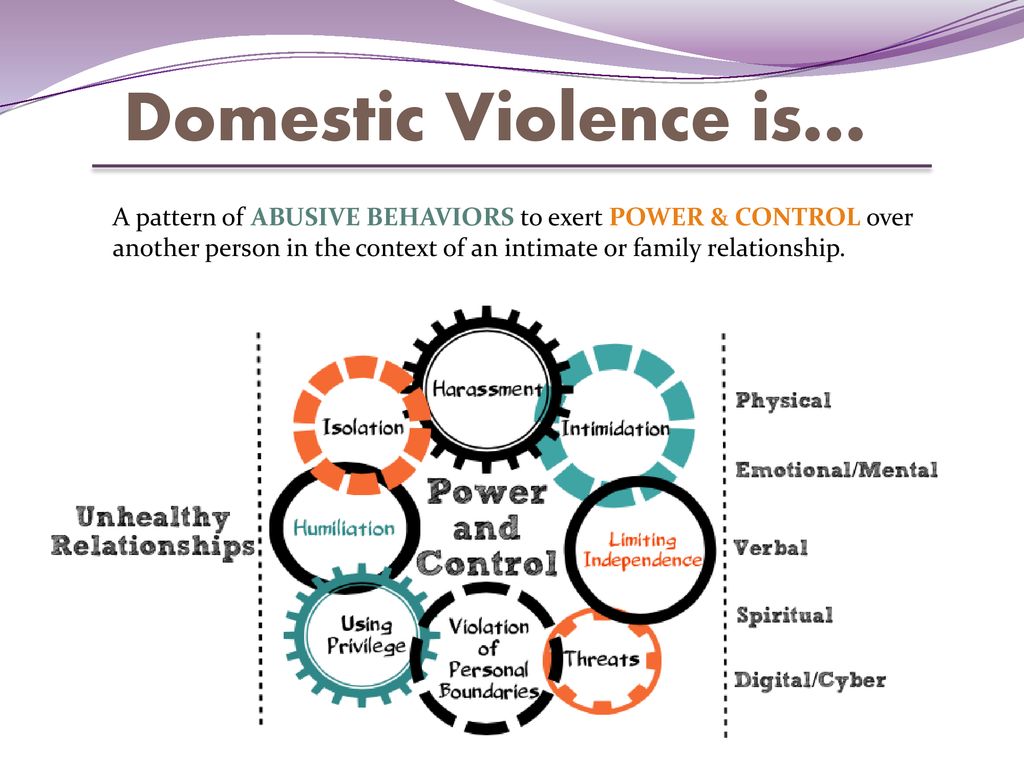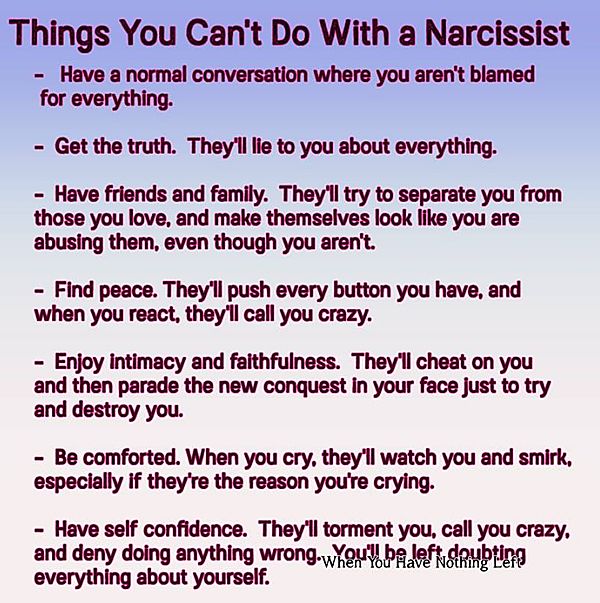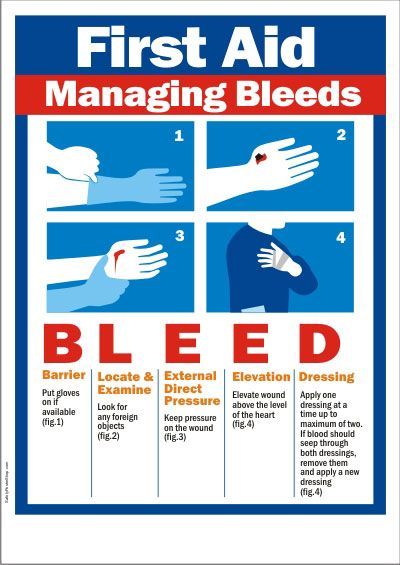Do narcissists believe in god
Narcissists God and Religion, Aspirations to God-likeness
Want to stay up to date with the latest on mental health?Email(Required)
NameFirst Last
State
Choose stateAlabamaAlaskaAmerican SamoaArizonaArkansasCaliforniaColoradoConnecticutDelawareDistrict of ColumbiaFloridaGeorgiaGuamHawaiiIdahoIllinoisIndianaIowaKansasKentuckyLouisianaMaineMarylandMassachusettsMichiganMinnesotaMississippiMissouriMontanaNebraskaNevadaNew HampshireNew JerseyNew MexicoNew YorkNorth CarolinaNorth DakotaNorthern Mariana IslandsOhioOklahomaOregonPennsylvaniaPuerto RicoRhode IslandSouth CarolinaSouth DakotaTennesseeTexasUtahU.S. Virgin IslandsVermontVirginiaWashingtonWest VirginiaWisconsinWyomingArmed Forces AmericasArmed Forces EuropeArmed Forces Pacific
I am Interested In
Mental health servicesOnline webinars about mental health topicsOnline courses
This field is for validation purposes and should be left unchanged.
“1 But know this, that in the last days perilous times will come: 2 For men will be lovers of themselves, lovers of money, boasters, proud, blasphemers, disobedient to parents, unthankful, unholy, 3 unloving, unforgiving, slanderers, without self-control, brutal, despisers of good, 4 traitors, headstrong, haughty, lovers of pleasure rather than lovers of God, 5 having a form of godliness but denying its power. And from such people turn away! 6 For of this sort are those who creep into households and make captives of gullible women loaded down with sins, led away by various lusts, 7 always learning and never able to come to the knowledge of the truth. 8 Now as Jan’nes and Jam’bres resisted Moses, so do these also resist the truth: men of corrupt minds, disapproved concerning the faith; 9 but they will progress no further, for their folly will be manifest to all, as theirs also was.”
(The Second Epistle of Paul the Apostle to Timothy 3:1-9)
God is everything the narcissist ever wants to be: omnipotent, omniscient, omnipresent, admired, much discussed, and awe inspiring. God is the narcissist’s wet dream, his ultimate grandiose fantasy. But God comes handy in other ways as well.
God is the narcissist’s wet dream, his ultimate grandiose fantasy. But God comes handy in other ways as well.
The narcissist alternately idealizes and devalues figures of authority.
Narcissist’s Relationship Cycle With God
In the idealization phase, he strives to emulate them, he admires them, imitate them (often ludicrously), and defends them. They cannot go wrong, or be wrong.
The narcissist regards them as bigger than life, infallible, perfect, whole, and brilliant. But as the narcissist’s unrealistic and inflated expectations are inevitably frustrated, he begins to devalue his former idols.
Now they are “human” (to the narcissist, a derogatory term). They are small, fragile, error-prone, pusillanimous, mean, dumb, and mediocre. The narcissist goes through the same cycle in his relationship with God, the quintessential authority figure.
But often, even when disillusionment and iconoclastic despair have set in – the narcissist continues to pretend to love God and follow Him.
The narcissist maintains this deception because his continued proximity to God confers on him authority. Priests, leaders of the congregation, preachers, evangelists, cultists, politicians, intellectuals – all derive authority from their allegedly privileged relationship with God.
Abusing Religious Authority
Religious authority allows the narcissist to indulge his sadistic urges and to exercise his misogynism freely and openly. Such a narcissist is likely to taunt and torment his followers, hector and chastise them, humiliate and berate them, abuse them spiritually, or even sexually.
The narcissist whose source of authority is religious is looking for obedient and unquestioning slaves upon whom to exercise his capricious and wicked mastery.
The narcissist transforms even the most innocuous and pure religious sentiments into a cultish ritual and a virulent hierarchy. He preys on the gullible. His flock become his hostages.
Religious authority also secures the narcissist’s Narcissistic Supply. His coreligionists, members of his congregation, his parish, his constituency, his audience – are transformed into loyal and stable Sources of Narcissistic Supply.
His coreligionists, members of his congregation, his parish, his constituency, his audience – are transformed into loyal and stable Sources of Narcissistic Supply.
They obey his commands, heed his admonitions, follow his creed, admire his personality, applaud his personal traits, satisfy his needs (sometimes even his carnal desires), revere and idolize him.
God As A Source For Narcissitic Supply
Moreover, being a part of a “bigger thing” is very gratifying narcissistically. Being a particle of God, being immersed in His grandeur, experiencing His power and blessings first hand, communing with him – are all Sources of unending Narcissistic Supply.
The narcissist becomes God by observing His commandments, following His instructions, loving Him, obeying Him, succumbing to Him, merging with Him, communicating with Him – or even by defying him (the bigger the narcissist’s enemy – the more grandiosely important the narcissist feels).
Like everything else in the narcissist’s life, he mutates God into a kind of inverted narcissist. God becomes his dominant Source of Supply. He forms a personal relationship with this overwhelming and overpowering entity – in order to overwhelm and overpower others.
God becomes his dominant Source of Supply. He forms a personal relationship with this overwhelming and overpowering entity – in order to overwhelm and overpower others.
He becomes God vicariously, by the proxy of his relationship with Him. He idealizes God, then devalues Him, then abuses Him. This is the classic narcissistic pattern and even God himself cannot escape it.
Take The First Step
Complete this brief form to schedule your commitment-free assessment at our convenient central Phoenix location, or call us at (602) 704-2345, and our helpful staff will assist you.
Schedule Your Appointment
Can a Narcissist Believe in God?
Religious narcissists are everywhere. They become priests, pastors, or other church leaders because it is a service industry that automatically grants the holder of the position authority over many people in the community. BUT…does the narcissist actually believe in God?
As a general rule, a religious narcissist does believe in God, but not like we do. Because they lack empathy and can’t see things in terms of humanity, they see God in the same way. He is just a means to an end. A tool to use to get what they want, which is usually adoration and control over everyone around them.
Because they lack empathy and can’t see things in terms of humanity, they see God in the same way. He is just a means to an end. A tool to use to get what they want, which is usually adoration and control over everyone around them.
But there’s more to the story than that simple answer. Let’s take a look at how the narcissist’s belief in God plays out in real life.
Table of Contents
The Narcissist Sees a Different God Than We Do
As a devout Christian for nearly my whole life, I see God as my Savior, Protector, Guide, Comforter, Inspiration, and so much more. But that is not the case with most narcissists, especially as they appear higher on the narcissism spectrum.
A narcissist sees God as their equal, even though the words of the narcissist proclaim the Omniscience, Omnipresence, and Omnipotence of God. The reason for this seeming dichotomy lies in the fact that the narcissist wants to be all of those things. That is what they aspire to and what they actually proclaim when they speak of “growing more like God daily. ” What they don’t understand is that we are not supposed to be taking over God, but rather, we are supposed to be growing more in tune with God daily.
” What they don’t understand is that we are not supposed to be taking over God, but rather, we are supposed to be growing more in tune with God daily.
The Narcissist Believes God is a Vehicle to Get Them What They Want
In addition to trying to take God over in their neverending pursuit of admiration and glory, narcissists believe in God as the vehicle that can bring them all the glory. This concept for them is the same as the fact that from childhood we are told to associate with people that will be beneficial in our life. We are taught that to associate with kind, loving, good people that are productive members of society will be good for us. On the other hand, associating with criminals, abusers, and mean people will bring those character traits out in us as well.
So, narcissists believe that God is their ticket to all of the admiration and glory they need. They believe that if they can show everyone how close they are to God, nobody can question their motives, Christianity, or wisdom. Because to do so would be criticizing God Himself.
Because to do so would be criticizing God Himself.
Narcissists know how to behave like a Christian. They can act like the most caring, kind, self-sacrificing, attentive person in the room. But it is all an act. This is so frustrating! If they know how to act, I could never figure out why they couldn’t figure out that those qualities were the key to living an authentic life. But that wasn’t what he was trying to live. It was more about how to elevate himself by tearing others down while pretending to be the best, most loving Christian in the room. I know, it sounds confusing. But when you have lived it, it makes so much more sense!
God is, in effect, the tool that the narcissist uses to exercise power, manipulation, and control over those around him. If anybody chooses to disagree, he will bring the very judgment of God down on their head. And he will make sure the whole world knows it. That person will never dare cross him again.
Additionally, nobody else will dare cross him because they don’t want to be destroyed in the same way they witnessed the destruction of the “example. ” This can go on for years in Christian circles, especially because most Christians don’t want to bring other people’s darkness to light.
” This can go on for years in Christian circles, especially because most Christians don’t want to bring other people’s darkness to light.
Narcissists Seem to Believe They Can Manipulate God
C.S. Lewis, in his book, Mere Christianity (click on the title to check out this beautiful keepsake edition), said, “A proud man is always looking down on things and people; and, of course, as long as you are looking down, you cannot see something that is above you.”
Narcissists believe in God in that He is there for them to manipulate. They don’t have to look to God. They already have God set up as a construct in their mind. A narcissist never lets the facts get in the way of their perceptions!
I remember my husband always telling me that he didn’t need to read a book to tell him how to do something. He could figure it out himself. I would respond by asking if he wouldn’t at least value the time saved in not having to figure it out or the inspiration. He would continue to state that nobody needed to tell him what to do or how to do it. He was pretty much the same with his feelings (or lack of) for God.
He was pretty much the same with his feelings (or lack of) for God.
My ex-husband read and memorized Scripture all the time. He could generally outrank me in quoting Scriptures. But he didn’t do these things to grow closer to God or to become more sanctified in his Christianity. He did it to use the Scriptures as proof texts for his narcissistic behavior. As long as he had proof that he was “doing God’s work,” nobody could counter him. Because again, to counter him would be to go against God Himself. I’m sure you are now seeing the pattern emerge.
Counselors, pastors, and church elders tried to explain the correct meaning of the Scriptures to him. But he denied it, called them unbiblical, and moved on to people that accepted and encouraged his narcissistic interpretation of the Bible.
Conclusion
Religious narcissists appear to be the model Christian in most public settings. They capitalize on their ability to mimic true Christianity. But in reality, they are liars, manipulative, selfish, mean, conniving, and totally lacking in any empathy.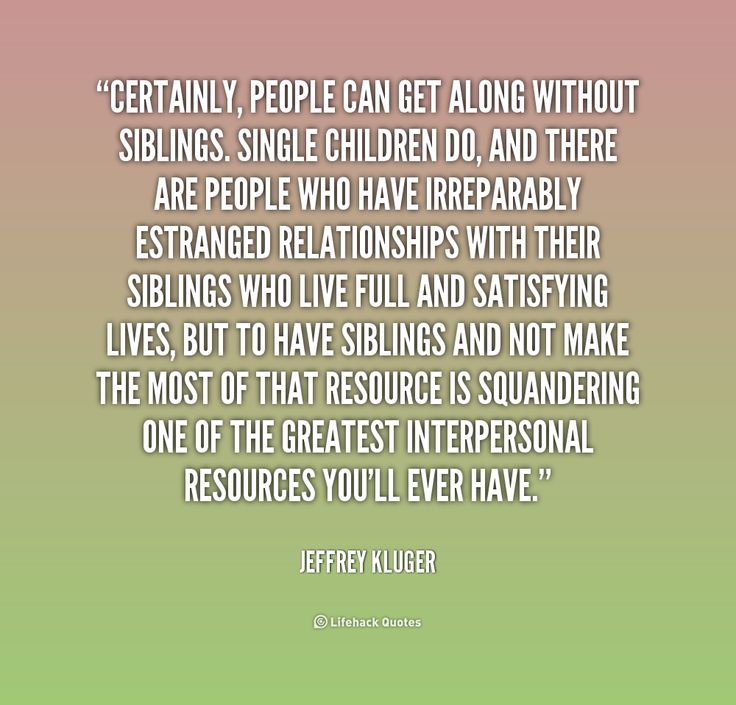
They aren’t looking to God. Instead, they are looking to the next stepping stone that will get them further along their road. What they don’t realize is that they are on a path to destruction. And amazingly, they don’t realize that God sees them for what they are. And they will not escape His judgment if they don’t repent. (For more on this, check out my article here.) They will eventually have to believe in God in the true way.
“You say you have faith, for you believe that there is one God. Good for you! Even the demons believe this, and they tremble in terror.” –James 2:19, New Living Translation.
What has your experience with a religious narcissist been like? Did he believe in God in a different way? Did he use his religious beliefs to harm those around him? I would love to hear your experience. Please feel free to comment below or here if you don’t feel comfortable commenting publicly.
Hugs and love to you,
If you found this article valuable, I think you will also find the following articles valuable:
How Can You Tell if Someone is a Religious Narcissist?
Can Two Narcissists be in Relationship With Each Other?
Understanding the Tactics of a Religious Narcissistic Father
Dealing With the Trauma of a Religious Narcissistic Mother
When Narcissism Becomes Pathological
Will God Punish a Narcissist?
What to do When Your Narcissist Threatens You
The Bible Used as a Weapon Against You: You Can Overcome!
What Does the Bible Say About Abusive Husbands?
The Link Between Spiritual Abuse and Narcissism
Why Narcissists Want to Apear Godly
What Healing From a Narcissist Looks Like
Why Narcissists Love Going to Church
How Religious Narcissists Think
Are Narcissists Evil?
Narcissistic Behavior: What to Look Out For
Praying for Your Narcissistic Husband
Are Spiritual Narcissists Overt or Covert?
Religious Trauma Syndrome: How to Preserve Your Spiritual Journey
How to Navigate Religious Narcissistic Parents
What Happens to the Soul of a Narcissist?
How to Heal From a Spiritual Narcissist
Can You Maintain a Relationship With a Spiritual Narcissist?
Can Narcissists Have a Spiritual Awakening?
How Will God Judge a Narcissist?
When the Church Says to Move Back in With Your Narcissist
What Can we Say to a Christian Friend Who’s Divorcing?
Why Does God Hate Divorce?
12 Ways the Church Helps Narcissists Abuse Their Victims
When Your Church Believes the Narcissist’s Lies
23 Reasons Why Narcissists are Drawn to the Church
What Does the Spiritual Narcissist do When You try to Leave?
When the Church Doesn’t Recognize Narcissistic Abuse
Will the Church Support Divorcing a Narcissist?
Are Narcissists Demon Possessed?
What Does the Bible say About Narcissism?
Can a Narcissist be a Christian?
Can a Spiritual Narcissist Heal?
What is Spiritual Narcissism?
90,000 Narcissus in myths and legendsNarcissus - a flower of water god
Magomet said about the flower: “Those who have two bread, let him sell one to buy a narcissist flower, because bread is food for the body, and Narcissus. - food for the soul. nine0004
- food for the soul. nine0004
The scientific name is Narcissus Poeticus. It comes from the word narke - stupefying, stupefying, since its smell can really sometimes cause a headache in nervous people.
The second name - poeticus (poetic) is due to the fact that it was so praised by poets of all countries and centuries, like no other plant, except perhaps only the rose.
In Ancient Greece the image of the narcissus acquired the symbolic meaning of a narcissist. One of the ancient Greek legends tells about the origin of the narcissus. nine0005
Once there lived Narcissus, the son of the nymph Liriope and the Boeotian river god Kefiss (Boeotia is an ancient Greek province with the main city of Thebes). He was handsome and loved no one but himself. Such people are found not only among the sons of nymphs and gods. He was predicted that he would live to a ripe old age - but only if he did not see himself. The young man laughed at the prediction - he often laughed at what he shouldn't have laughed at, because he considered himself superior to others.
The young man laughed at the prediction - he often laughed at what he shouldn't have laughed at, because he considered himself superior to others.
Nowadays it is difficult to live to adulthood and never look in the mirror. And then it was easy - the mirrors were expensive, and there was nowhere to get them for the son of the river god, who spent his life in nature. Never saw himself Narcissus and did not know how beautiful he is. Once the nymph Echo fell in love with him, but he rejected her and laughed at her love - because he loved to laugh at others. The nymph was offended and asked the gods to avenge her. Nemesis, goddess of vengeance, was not long in coming. On the same day, Narcissus went hunting and on the way stooped to the spring to get drunk. Nemesis straightened the folds of water, smoothed the surface of the spring. And Narcissus saw how beautiful he was, and fell in love with himself with great love ... He could not take his eyes off his reflection, he did not eat, did not drink, did not sleep, bewitched by Nemesis. The echo carried through the forest his complaints and farewell to life. Finally, death closed his eyes, his beautiful head fell on the soft turf, and the unfortunate young man flew off to the banks of the Styx. nine0005
The echo carried through the forest his complaints and farewell to life. Finally, death closed his eyes, his beautiful head fell on the soft turf, and the unfortunate young man flew off to the banks of the Styx. nine0005
Naiads, his sisters, covered his grave with their long hair. The echo echoed in a thousand ways their lamentations and groans. Finally, the funeral pyre was ready, but the body of the beautiful Narcissus disappeared - instead, a delicate, fragrant flower flaunted on the bank of the silvery stream ...
However, later this story was told differently: they say, Narcissus had a sister whom he loved very much and similar to him, like two drops of water. The girl died, and Narcissus began to look into the water of the lake - it seemed to him that he saw his beloved sister on the surface of the water. Then, unable to bear the loss, he threw himself into the water. nine0005
Ancient Romans greeted the victors of battles with yellow daffodils. The image of this flower is found on the walls of Ancient Pompeii. He was sacrificed to the Furies and Pluto.
He was sacrificed to the Furies and Pluto.
There are many legends about daffodils, especially in the East. The Chinese narcissus flower is obligatory in every home on New Year's holiday. They decorate the altars of the gods, they wear it on this day in all solemn processions. In Japan and China, they are somehow strangely plausible - they name names, show the areas where this or that story took place with the participation of a narcissist. For example, in the province of Fujian, a dry pond was shown, near which the first daffodil grew in China. One day a poor woman scraped up the leftover rice to cook for her son. And then a beggar traveler knocked on her house and asked for alms. He was thin and emaciated, as if he were starving, and the woman gave him the rice. But as she handed over the food, she wiped away her tears. nine0005
- What are you crying about? the traveler asked.
- I have nothing to feed my son when he returns from the field, - the woman said honestly.
- Do you regret giving away the rice?
- No, you need it more. My son is young and you are old. My son is healthy and you are sick.
The traveler thanked the kind woman and was about to go further... but he saw a pond nearby and suddenly rushed into it. The woman screamed. The neighbors came running, began to look for the traveler, or at least his body, ... but they did not find it. And a wonderful flower grew on the shore. nine0005
- This is a flower for you, the people said to the woman. “It was the river god who thanked you.
Since then, daffodils have been growing in China, which are called "flowers of the river god." History is silent about what happened next with the woman who gave the rice. I would like to believe that since then the need has left her house, and the river god found an opportunity to thank her in some effective way ... But nothing is known about this.
In ancient Persia narcissus was called "nargis".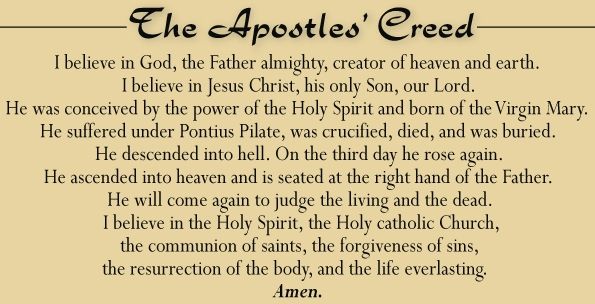 In modern Persian, its name sounds somewhat different - "narges", and in translation means "beautiful eye". The Persian king Cyrus I, the founder of the Achaemenid dynasty, was also the first gardener of Iran. He called the narcissus "a creation of beauty, an immortal delight." Poets of different eras, including the classic of Persian poetry Hafiz and the coryphaeus of modern Iranian poetry Rakhi Muayeri, used the name of this flower in the poetic allegory of the phrase "chashme narges", meaning by it the eyes of a beloved like a narcissus. The image of a narcissist acquired new colors in classical Persian romances: the expression “narges mast”, which is often found in them, means “languid look”. nine0005
In modern Persian, its name sounds somewhat different - "narges", and in translation means "beautiful eye". The Persian king Cyrus I, the founder of the Achaemenid dynasty, was also the first gardener of Iran. He called the narcissus "a creation of beauty, an immortal delight." Poets of different eras, including the classic of Persian poetry Hafiz and the coryphaeus of modern Iranian poetry Rakhi Muayeri, used the name of this flower in the poetic allegory of the phrase "chashme narges", meaning by it the eyes of a beloved like a narcissus. The image of a narcissist acquired new colors in classical Persian romances: the expression “narges mast”, which is often found in them, means “languid look”. nine0005
Narcissus also plays a significant role in Muslim culture. Mahomet said of the flower: "Whoever has two loaves, let him sell one to buy a narcissus flower, for bread is food for the body, and narcissus is food for the soul."
Narcissus came to Europe in 1570 from Constantinople as a gift to the Lord of the Treasury of England and was first grown in his famous garden on the banks of the Thames. This garden was especially famous for the many plants acclimatized in it. And now the daffodil is the favorite flower of the British, which is second only to the rose in popularity in the UK. nine0005
This garden was especially famous for the many plants acclimatized in it. And now the daffodil is the favorite flower of the British, which is second only to the rose in popularity in the UK. nine0005
Switzerland celebrated the daffodil festival: on the first Sunday in May, all buildings were decorated with multi-colored flags, and the doors of houses and shops were decorated with garlands of daffodils. There were festivities in the streets and squares. Bouquets of daffodils are in the hands of all the ladies, boutonnieres are in the buttonholes of the jackets of all the men. Daffodils were used to remove horse-drawn carriages, carriages, manes of horses and donkeys. Daffodils were full of flowers everywhere, and their light aroma filled not only all the streets, but was also felt in cafes, restaurants, and apartments. The holiday lasted 2 days. Its peak is a melodramatic performance and a battle of colors. nine0005
In Prussia daffodils were symbols of love and happy marriage. The girl who was getting married took the flower away from her parents' house and looked after it so that it would grow better, because, according to legend, the happiness of the new family depended on its appearance.
The girl who was getting married took the flower away from her parents' house and looked after it so that it would grow better, because, according to legend, the happiness of the new family depended on its appearance.
Daffodils of some species contain essential oil, and bulbs contain alkaloids, therefore daffodils have long been widely used in perfumery and medicine.
Narcissus played a special role in the erotic culture of Europe . European herbalists considered the narcissus flower to be a talisman that attracted the love of women, and, touching on the carnal side of love, they recommended that men drink water obtained from narcissus bulbs by distillation to increase potency, and women should wash their breasts with this water to maintain their attractiveness.
Narcissus is mentioned and in the ancient prescriptions of oriental medicine . Oriental healers used narcissus bulbs to treat mastitis. The peeled narcissus bulb was thoroughly crushed, mixed with thick rice porridge or rye flour, and the resulting slurry was applied to the affected chest. The hardened crust was washed off with warm water. The procedure was performed 2-3 times a day. nine0005
The hardened crust was washed off with warm water. The procedure was performed 2-3 times a day. nine0005
However, fans of daffodils should always be aware of another property of these flowers. Narcissus bulbs cause allergic reactions in some people - reddening of the skin of the hands, itching, hives.
Materials from the books "Kingdom of Flora", "Flowers bulbous and bulbous" are used in the article.
- Go to the catalog of daffodils, choose and order!
- How to choose a place for planting daffodils, how to feed, how to properly plant and propagate daffodils, read the article "Features of agricultural technology of daffodils"
- How to determine which group a given daffodil belongs to, read the article "International classification of daffodils"
- In order not to be mistaken in the amount of fertilizer for perennials and daffodils, see the "Table of measures and weights of fertilizers"
"Accept yourself - accept that I am nobody" (Confessions of a Narcissist)
The author of the story "My False I" https://tanja-tank. livejournal.com/192286.html wrote about his spiritual quest, to which he was prompted post "Holy fathers about envy and predators" https://tanja-tank.livejournal.com/197152.html.
livejournal.com/192286.html wrote about his spiritual quest, to which he was prompted post "Holy fathers about envy and predators" https://tanja-tank.livejournal.com/197152.html.
Let me remind you: the hero himself diagnoses himself as a narcissist.
"That post was about the need to fight envy and about the methods of this fight that the church offers. When I read it, I had a complete rejection of what was written. And there were a lot of questions that I expressed there.
One of my questions was: "If I only have sorrows and compulsions, and how can I give a damn, there is no point in going to such a God and thinking about someone other than myself. Something is wrong in this collection, something is clearly missing. Because if it's ONLY like that, it doesn't make any sense.”
Now I want to share some of the answers I found to my questions. Maybe I'm not the only one interested in this. I myself cannot say that I am a churchly believer, and it would hardly be useful to seriously study this issue if one commentator did not constantly tell me “learn the catechism, learn the foundations of faith. ” I confess that it bothered me. I thought that I already knew the basics, and that was enough for me.
” I confess that it bothered me. I thought that I already knew the basics, and that was enough for me.
But this catechism gave me no rest. Or rather, not a catechism, but such a message from this commentator that I don’t know something, I don’t understand something, and my knowledge on this topic is below the baseboard. I did not turn to the commentator for clarification. Because, when they directly point out to me that I am a layman in something, it infuriates me .
In short, I decided that I myself am smart, and I can quite fill this knowledge on my own. I read the catechism. Well, as I read - diagonally. Tiagomotina rare in three volumes. It feels like you want to turn the page faster and already get to something significant.
Which I did. I skimmed through the pages, stopping only at what interested me. Well, like, I know this, I also heard it, but this is interesting. Well, after reading these three volumes, the level of my understanding of faith remained the same. Which is probably expected. nine0005
Which is probably expected. nine0005
No, I learned something new, but here's an understanding... In short, what questions I had before reading the catechism, the same remained after. And such great skepticism towards the church's way of dealing with envy.
That commentator seemed to say that my understanding directly depends on what psychological attitudes I have already developed. And no matter how many times I read that God loves me, I will still be guided by how my mother loved me, and how my mother decided what was best for me, regardless of me. nine0125
And by analogy, I will think that God's care for me will be on the same principle as my mother's care. I think and will think that God doesn't really care what happens to me, whether it's good or bad for me. God needs me to be right and obedient.
And for this He will do anything with me, regardless of my I. Well, in general, that's exactly what I think. And so I probably need normal explanations from someone who is in the subject.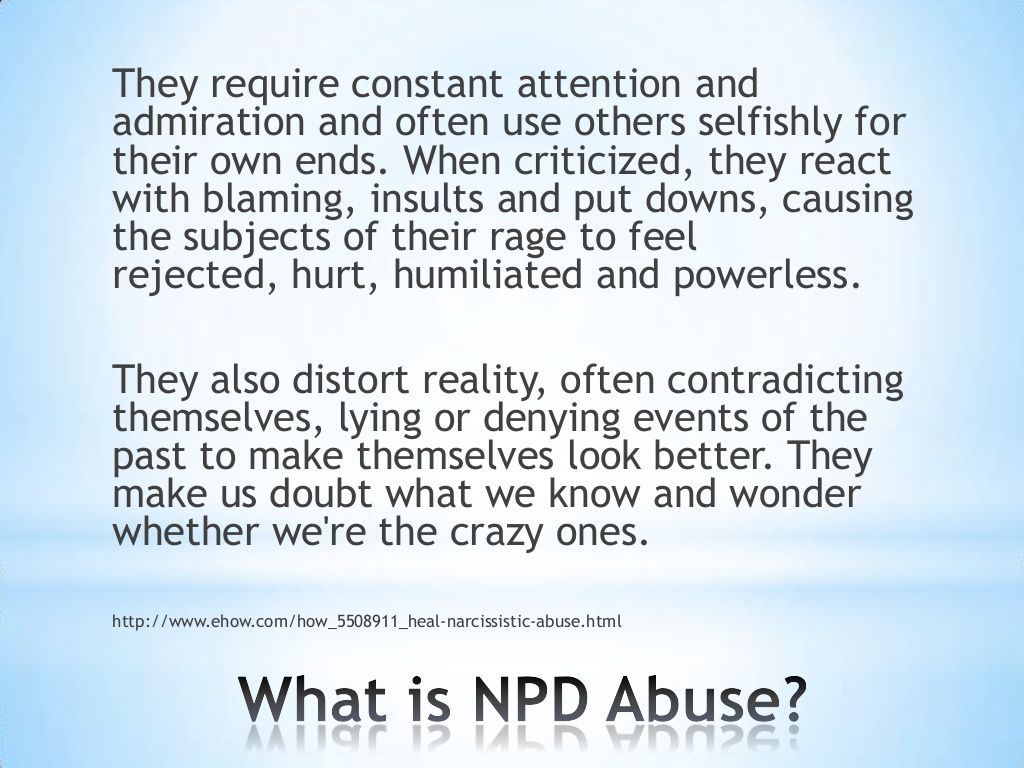 nine0005
nine0005
And just then my mother was about to go to the monasteries. Among her acquaintances, it seems to be fashionable. I will not describe the circus on the theme of “daffodils on a pilgrimage”, this time this performance did not interest me. I went only for the purpose of replenishing my knowledge. If I don’t find an explanation for myself, I will still get new information, and this in itself is interesting.
Monastic life did not impress me. I talked there with one monk, then with another, I asked something, they answered me. And gradually my questions began to clear up. nine0005
My biggest thorn in the subject of faith is humility. The very word causes me rejection and protest. For me, this word means that God will do anything with me, regardless of me, and at the same time I must sit on the priest evenly, not object and not grumble.
Feeling that they are trying to put me on a chain and force me to give up myself. To bend and force to obey. And although I have already read and heard a lot on this topic, that it seems like this is not so, these feelings have not gone away. nine0005
nine0005
But what I haven't heard yet is that humility, it turns out, means accepting yourself as you are. This was big news for me. But what about the fight against sins, shouldn't I climb out of my skin, break myself and remake in order to overcome the same pride or envy? How does the struggle “with passions and lusts” fit in with accepting myself for who I am? Aren't these mutually exclusive concepts?
Even when I was reading the Holy Fathers, I came across such a phrase "jealousy is not according to reason." This means such a zeal for holiness, when a person takes on obligations or some feats of piety that are beyond his strength. Which he does not yet fully understand and for which he is not ready. nine0005
I knew that. So humility is to admit that I don’t understand something (in fact, I don’t understand a lot of things), I can’t do it and I’m not ready. And to piety to me, as to China on foot.
Humility is the Awareness of oneself as one is. Awareness and acceptance in myself of all my misunderstandings, all my questions, all my emotions, all my imperfection and sinfulness . .. Just a recognition that at the moment I am like this. I'm up to the right, as up to Mars. And when you accept yourself as you are, there is peace in your soul. Therefore, humility. It seems like psychologists say the same thing. nine0005
.. Just a recognition that at the moment I am like this. I'm up to the right, as up to Mars. And when you accept yourself as you are, there is peace in your soul. Therefore, humility. It seems like psychologists say the same thing. nine0005
But it's probably normal people who have peace in their souls. And for me, as for a narcissist, in accepting myself as I am, just the problem, oddly enough. For me, as for a narcissist, TO REALIZE myself as I really am, and not as I DRAWED myself to myself, this is a very big problem.
Or rather, I'm probably always aware of everything about myself with some part of my brain. I just don't want to see it. From this part of consciousness, I always move to the one where I drew some image of myself that I like better. and to refuse this comfortable vision of myself, instead to rest against the unflattering truth, and not just for a minute, but to remain in this unflattering self-awareness is a problem for me.
But, it turns out, that's not all. I also need to acknowledge that I really am and accept myself. To accept myself as I am is not just to stop pretending to be something other than what I am. To accept myself, how to explain it ... For me, this means accepting that I am nobody. nine0125 I am absolutely not the way I want to seem to myself and how I picture myself. As I am, I am not even interested in myself.
I also need to acknowledge that I really am and accept myself. To accept myself as I am is not just to stop pretending to be something other than what I am. To accept myself, how to explain it ... For me, this means accepting that I am nobody. nine0125 I am absolutely not the way I want to seem to myself and how I picture myself. As I am, I am not even interested in myself.
Before the Orthodox told me what it really means to accept oneself the way I am, I thought it was akin to indifference. Well, here I am, such a gouging, I was and will be, I accept myself as such a gouging, as I am, and I live calmly for myself, without changing anything.
And, for example, I continue to portray something great in front of others, as before. And I don’t even try to fight envy. Because it’s beyond my strength, I’m not ready, and I’m not even close to being righteous, get off me already. I am a great and terrible villain. Narcissus. nine0005
But it turns out that even self-acceptance is not so simple. You have to accept that no, I'm not great. And not terrible. Even to this level of villainy to me, as before China. I am completely unremarkable, ordinary, sick in the head, of which there are many. This is what I have to accept as it is.
You have to accept that no, I'm not great. And not terrible. Even to this level of villainy to me, as before China. I am completely unremarkable, ordinary, sick in the head, of which there are many. This is what I have to accept as it is.
Now I'll try to explain. I once wrote a fanfic about a character. I outlined his character from all sides, let in tragedy, invented a chain of events that, according to my plan, led him to the image of an evil psychopath. And, in my opinion, such a character turned out to be very interesting. Ambiguous and multifaceted, as fans love. nine0005
And suddenly one commentator writes: “And why do you always portray him as somehow difficult to feel and vulnerable, then as great and terrible? Open your eyes, it's just an ordinary petty dirty trick."
So, accepting myself as I am means for me to open my eyes at myself and accept that I am "an ordinary petty dirty trickster". No, it should be written like this - Normal. Small. Dirty dog. Each of these words can bring me to white heat.
Each of these words can bring me to white heat.
And here I am invited not only to acknowledge, but also to accept all this together about myself. I, even when I understand everything about myself, I can exist only in two images - either draw myself in accordance with my concepts of the right, or as great and terrible. I categorically do not accept myself as ordinary patients with a “little dirty trick” in the head.
But the Orthodox surprised me once again. First, I was told that this kind of self-acceptance is only the beginning. Secondly, they said that such self-acceptance is generally possible only when there is faith.
No, not the belief in the existence of God. And not faith that God will judge and repay sins. And not faith, as an obligation to pray, fast and observe church dogmas. And not faith, as the desire to get rid of sinful passions and become righteous. nine0005
Faith must be that God wants me to be happy. Faith must be in the fact that God wants me to actually, not under duress out of fear pretending to be contented and happy, but actually feel free and happy. So that it is I who actually feels truly happy, and does not bend under the idea of \u200b\u200bthe happiness of someone else.
So that it is I who actually feels truly happy, and does not bend under the idea of \u200b\u200bthe happiness of someone else.
Faith must be that God wants it. And faith that God will help me. He will not bend me and forcefully humble me, seeking my obedience, but will help me. This is what faith should be. This is what I missed as I read the catechism diagonally and clung to words like "sorrow" with my eyes. nine0005
And it turns out that this is the fundamental dogma of the Orthodox faith, without which nothing can exist and on which everything is built. From this dogma, it turns out, you need to start thinking about the fight against envy.
I don't believe in it. To be honest, and without pretending to be anything, I don't believe that anyone cares about me at all. My faith in God is the faith that God wants to make me as righteous as He imagines.
And for this He will break me, bend and humble me by all means, regardless of what happens to me and what I feel. He will take away my will, take away the awareness of my desires, take away everything that prevents me from making a submissive, obedient and uncomplaining slave. This is what I believe. nine0005
He will take away my will, take away the awareness of my desires, take away everything that prevents me from making a submissive, obedient and uncomplaining slave. This is what I believe. nine0005
And that God wants me to be happy and that I feel free and happy - no, I don't believe it.
I expected to be told that I was blaspheming or whatever they call it. And I was surprised when they told me, “It's good that you say that! No one is forcing you to suddenly take something out of nothing and believe. You are invited to meet God. Find out who He really is. You just need to remember His words, “I stand at the door of your heart and knock. And whoever opens it, I will go in to him. And if you don't open it, no one will come to you. If someone makes you believe, run away from him sparkling heels. nine0005
I didn't believe what they told me either. Looks like I'm being lured. I was given this instruction, “Just start learning about God. And when something frightens you, something you do not like and causes rejection, ask questions and find answers. Look for answers until you yourself voluntarily feel that you have understood it.
Look for answers until you yourself voluntarily feel that you have understood it.
That suits me. If I am not required to believe blindly, but are offered simply to study the issue, as it were, that suits me perfectly.
Now about the actual envy. It turns out that the Orthodox have an understanding that envy comes from such a feeling of self, as I wrote above when I explained what accepting myself as I am means to me. Envy comes from the feeling that I am nobody and I am nothing.
And without believing that God wants me to be happy, this feeling leads to the conclusion or perception that the benefits that I see in others are not available to me. The logic is this - I am nobody, and therefore no one will voluntarily give me any benefits. God won't give me anything but cuffs, and people won't give me anything either. And hence the envy that others are so lucky and they have something, and anger at these lucky ones. nine0125
Orthodox believe that in fact such thoughts are erroneous and in fact everything is not so. They figuratively painted such a picture for me - imagine that people are sitting on the banks of the river - fate and catch everyone who needs what.
They figuratively painted such a picture for me - imagine that people are sitting on the banks of the river - fate and catch everyone who needs what.
Orthodox believe that God gave each of the "fishermen" his own fishing rod for successful "fishing", individual, specially created for him, the one that best suits him. God has given everyone his individual "instrument", in the form of abilities and talents, so that a person can build his own happiness for himself or acquire his own good. nine0005
AND when a person feels that he is nobody, it means that a person cannot fully appreciate his abilities and talents, does not see that he has these talents, and does not know how to use this “tool”. Therefore, he does not actually do anything for himself, but passively waits, whether someone will give him something, or not, whether he is lucky or not lucky. And either he is in permanent depression, or he takes something away from someone.
Normally, there should be no envy, if a person needs something, he uses the tools (talents) given to him by God and builds for himself what he needs. nine0124 Envy is a mistake in self-perception and a mistake in worldview.
nine0124 Envy is a mistake in self-perception and a mistake in worldview.
Prayer to God for deliverance from envy is essentially a request that God let us see ourselves not as an empty place, but as a beloved creation of God, endowed by God with talents and abilities. And basically it's a request that God help me see and believe that He wants me to be happy.
In short, the Orthodox don't just believe in the existence of God. They believe that God created man as his beloved child. He endowed each person with individual talents and abilities that are most suitable for him. They believe that God wants a person to develop his abilities and talents, realize them and use them for good. And most importantly, the Orthodox believe that God loves me and wants me to be free and happy. And this is the fundamental dogma of faith on which everything else is built. nine0005
If you don't believe in it, or at least just don't remember it, everything else is inevitably distorted, becomes incomprehensible, and takes on a different meaning than it actually has in the Orthodox understanding.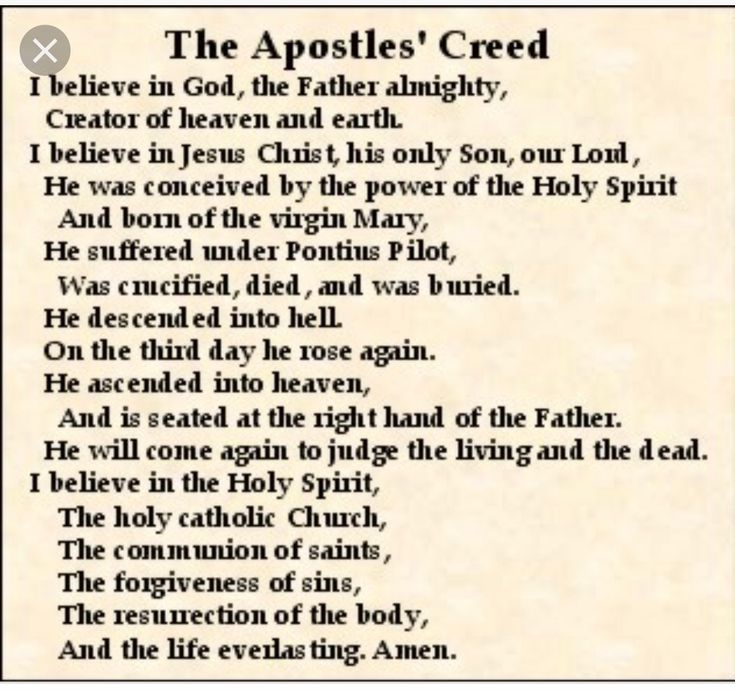
And returning to the question of humility - humility is acceptance of oneself as one is, but completely and completely, not only with one's imperfections, but also with one's talents and abilities. And from this complete acceptance of oneself as one is, calmness and peace arise in the soul. nine0005
I won't say that I believed all this. But at least it was unexpected and interesting for me to find out. I expected a sermon about sorrows and calls to endure everything silently and meekly.
But even here it turned out that no one calls for sitting silently in these very sorrows and doing nothing. You need to believe in the love of God, ask Him for help, and build your good and happy life. I certainly did not expect such explanations from Orthodox hieromonks. And if we take this as a fundamental axiom, then the Church's struggle with envy really looks different and makes sense. Probably. For normal people. nine0005
But does it make sense to myself? Here recently you had a post, like a narcissist, if he bakes a lot, he takes up his mind and changes his life. I do not know how people who are considered normal change their lives. Probably, they rethink their lives, rethink their values, give their actions some kind of assessment, repent of something, and "take up their minds."
I do not know how people who are considered normal change their lives. Probably, they rethink their lives, rethink their values, give their actions some kind of assessment, repent of something, and "take up their minds."
For me, changing my life is the desire that the external circumstances of my life change for my benefit and my pleasure . And, with a high degree of probability, I assume that narcissists like me are ready to "make the right gestures" only for the same specific purpose. And not with the goal of changing oneself and starting to live “correctly”.
It's like in childhood, a simple logical chain - I behave "correctly", for this I get "gingerbread" . I ate "gingerbread" - there is no need to "take up the mind." Since the need to earn "carrots" is situational and short-term, so is the "correction of behavior" short-term. Specifically, I am tempted by "gingerbread" in the form of a feeling of pleasure. nine0125
When I got involved in working on myself according to the 12 Steps program, it was a desire to get away from the feeling of emotional emptiness, when everything was already boring and nothing else was stuck, and to get the opportunity to enjoy something. I wanted to have something from which I will feel this pleasure.
I wanted to have something from which I will feel this pleasure.
I agree that there is some reason for my unsatisfactory life in myself. This is an obvious fact, and it is pointless to argue with it. For example, I will absolutely spoil and ruin any relationship myself, no matter how I was set up for them at the beginning. I, in general, never tried to be in a real relationship and did not see value in them for myself. In the same way, I did not see real value in any work or any business, so whatever I do, the work inevitably begins to weigh me down. nine0005
And it would be foolish to deny that there is no reason in myself for this to happen. I even agree that I don't really know what exactly I need . But I am also sure that I have not yet met such a person who would be really interesting to me, and I would like to have a relationship with him. And I am sure that this fact no longer depends on me.
In the same way, I have never had a job that would be so interesting to me that it would capture me.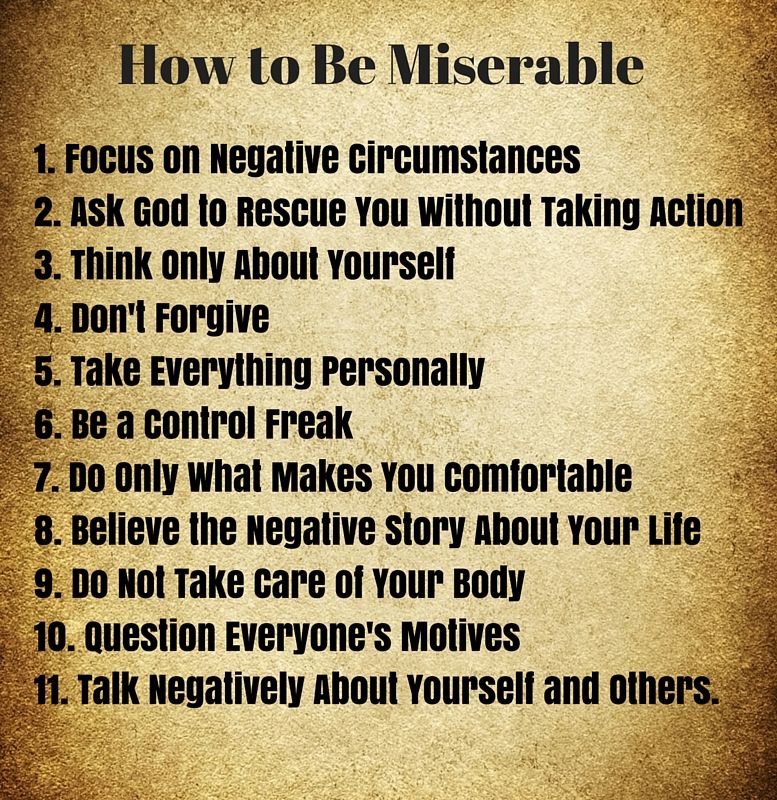 nine0005
nine0005
So the only purpose of my “correct body movements” can only be to get such “gingerbread” that will be really interesting to me and bring me pleasure. If “gingerbread” doesn’t fall from the sky, I have no reason to “get smart” or “fight envy” or even “take care of myself”.
Yes, the 12-step therapy and my psychologist made me much calmer, I began to understand myself and the motives of others much better, and I probably learned a lot in general. At work, from the moment of therapy, I did not feel the desire to run away, fall asleep, and never come back. nine0005
And self-knowledge was even very interesting. Perhaps my perception of the world around me and other people has even changed, it has become more conscious. But I didn’t have any “carrots”, and therefore, for me personally, in fact, little has changed.
And returning to the question of faith in God's love, for me, this, too, in general, does not mean much. It's probably more correct to say that love means little to me in general. For me, these are all abstract concepts.
For me, these are all abstract concepts.
I'm only interested in one question, will God give me "gingerbread" that will make my life tasty and interesting, or not. And, if after my “correct body movements” no gingerbread appears, I am disappointed , and further movement in this direction does not make sense to me.
Well, the general conclusion I came to is that people like me don't need love at all. Neither divine nor human. We need specific "gingerbread" in the form of an emotionally delicious life . And no matter what I say, I'm not really looking for anyone's love. I'm looking for something that will entertain me and give me pleasure. This is what I look for always and everywhere.
And even as if going to God, I'm looking for whether God will give me such entertainment, so that I become interested and get high, or not. And in relationships with people, I need not relationships and not their love, but all the same. nine0125
So I would probably agree with those commentators who believe that no therapy can help a narcissist.
